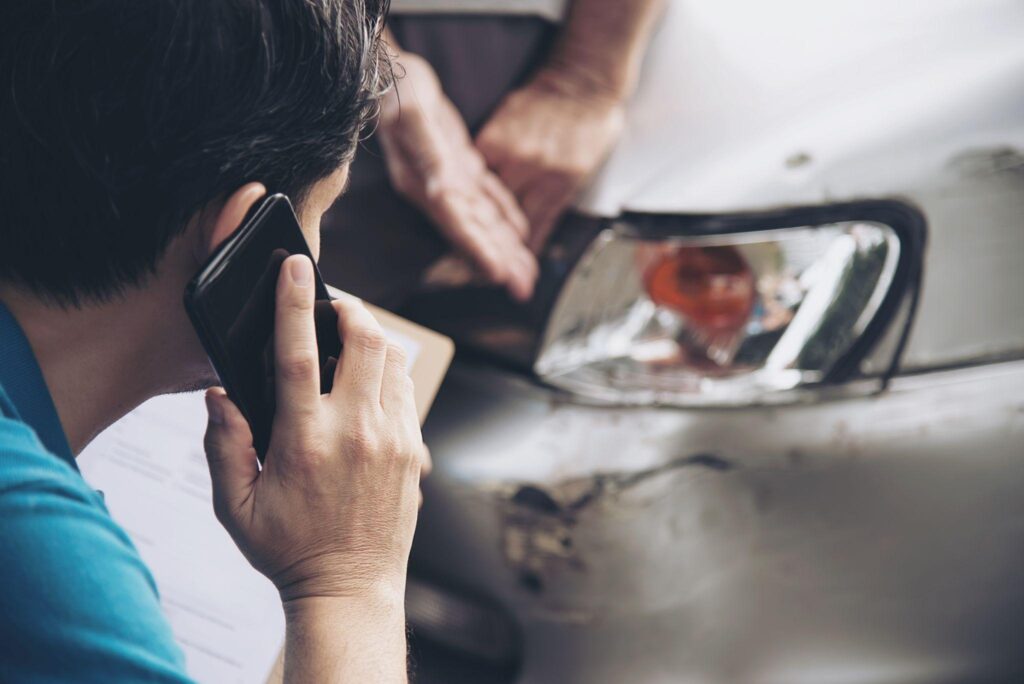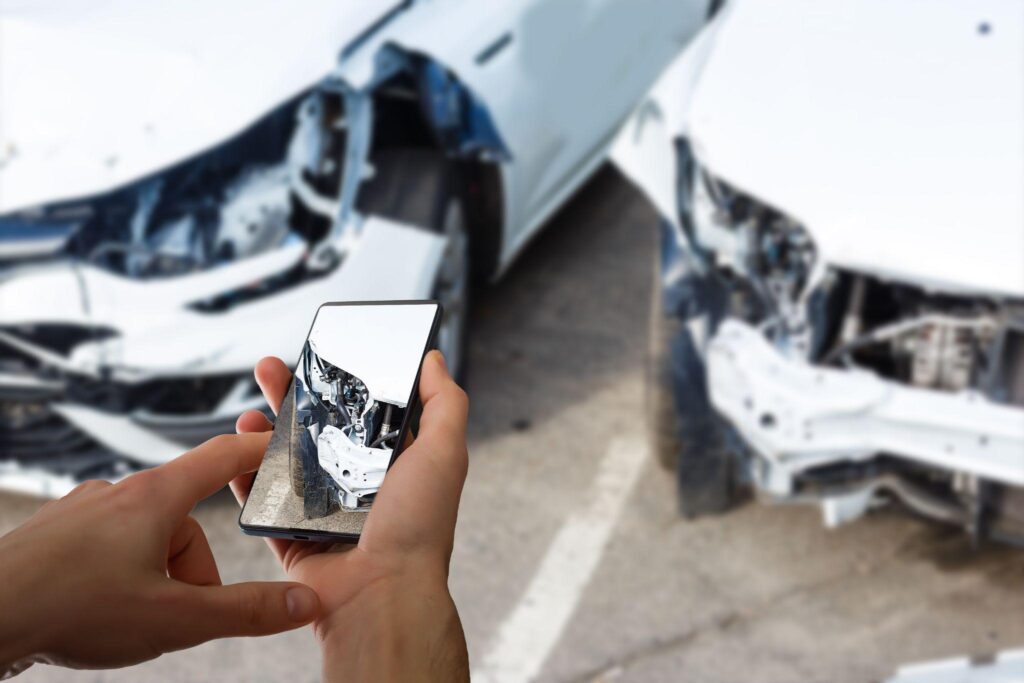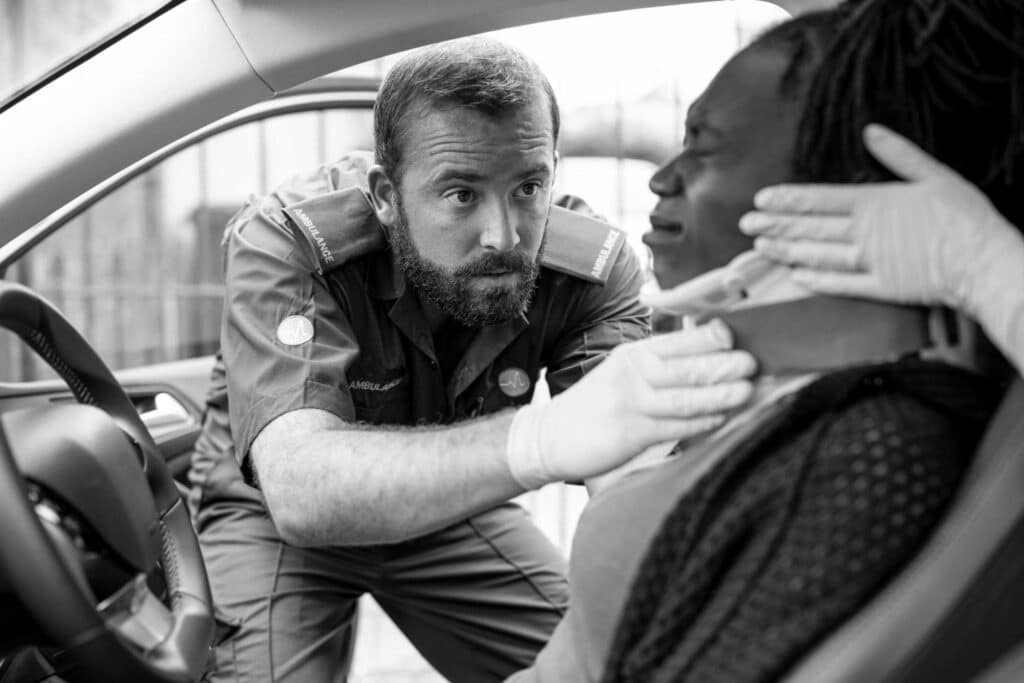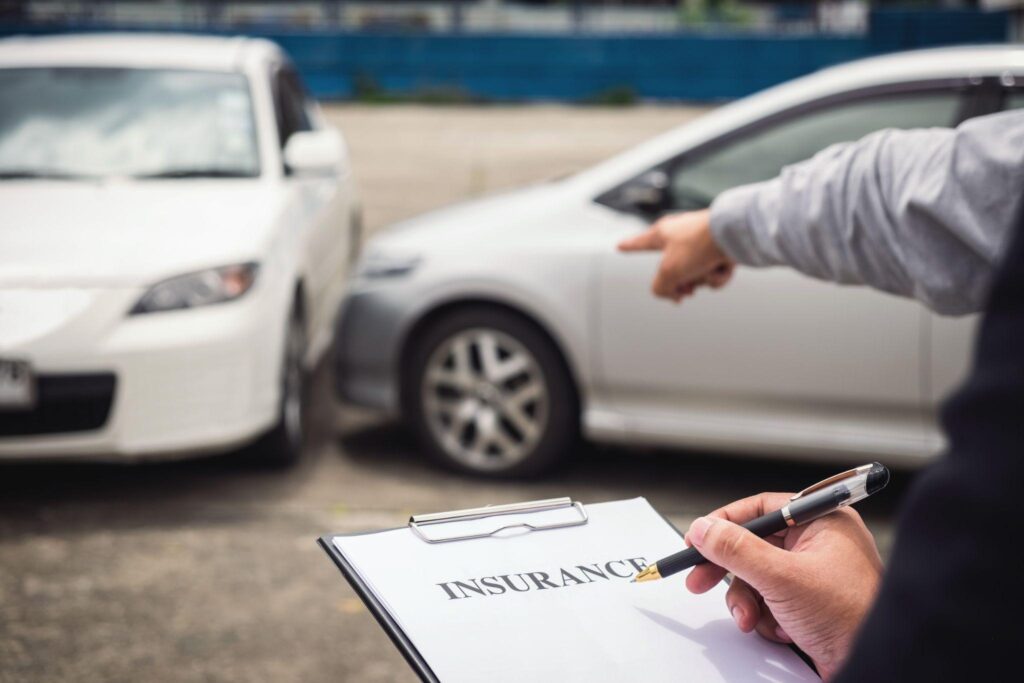The Complete Guide to Auto Accident Claim in Florida (2026)
Once you are in a car accident, your coming months or years are no longer the same. In the days and weeks after, you face a flood of paperwork and stress, all while you attempt to recover from your injuries. This is an unfortunate truth for too many families on Florida’s busy roads. State records show hundreds of thousands of crashes each year. Recent data from the Florida Traffic Crash Report indicates over 381,339 crashes in 2024 and more than 362,063 in 2025, which led to over 235,964 injuries.

The path to compensation in Florida is uniquely complex. It is a “no fault” state, a system with its own confusing rules. New laws from 2023 have dramatically changed the outlook for accident victims. These updates make it more of a challenge than ever to secure fair payment. The changes include a much shorter deadline to file a lawsuit. There is also a strict new rule that can remove your right to recovery if you are found to be mostly at fault.
This guide is your roadmap. We will walk you through the Florida auto accident claims process step by step. We cover what to do at the crash scene, how to understand your insurance policy, how to deal with adjusters, and when it’s time to call for legal help. Our goal is to give you the knowledge you need to protect your rights. For over 40 years, the team at Jack Bernstein, Injury Attorneys, has helped Florida families with these challenges. We created this guide to help you take control of your recovery.
But first, let’s look at this dashboard that showcases the number of crashes in Florida that have taken place in the year 2025.

Chapter 1: What To Do Immediately After a Car Accident
What you do in the first few hours after a car accident can greatly affect your finances and your ability to file a successful claim. You can protect yourself and preserve vital evidence if you stay calm and take these methodical steps.
1. Confirm Safety and Report the Crash

- Do not leave the scene: Your first and most important legal duty is to stop your vehicle and remain at the scene. It is a serious crime to leave the scene of an accident in Florida, especially one that involves an injury. Leaving the scene can lead to fines and even jail time. You should stay until law enforcement investigates and clears you to leave.
- Check for injuries and call 911: The health and safety of everyone is the top priority. Check on yourself and the people in the other vehicles. Call 911 right away to report the crash and ask for emergency medical services if anyone is hurt or complains of pain.
- Move to a safe location: If the cars can operate and it is safe to do so, move them out of traffic to a shoulder or a close lot. This action helps prevent other accidents and keeps you safe from approaching traffic while you wait for help.
2. Exchange Information and Collect Witness Details
While the police conduct their own work, you should collect your own evidence if you are physically able to do so.
Get the following items from all other drivers:
- Full name, address, and phone number
- Driver’s license number
- License plate number
- Auto insurance company name and policy number
If anyone stopped to help or saw the accident, ask for their name and contact information. Independent witnesses can offer powerful testimony to support your story.
3. Document the Scene

The more information you collect, the stronger your claim will be.
- Photos and videos: Use your smartphone to document everything. Take wide shots of the whole scene and close ups of the damage to all vehicles. Photograph skid marks, road debris, traffic signs, and any visible injuries you or your passengers have.
- Take notes: As soon as you can, write down or make a voice memo of everything you remember. This includes the weather, road conditions, the time of day, and what you did right before the impact.
4. Seek Medical Attention

This is one of the most vital rules in Florida auto insurance law. To qualify for your personal injury protection (PIP) benefits, you must seek initial medical treatment from a qualified provider within 14 days of the car accident. If you wait until day 15, then your insurance company can and likely will deny your claim for medical benefits, even if your injuries are serious.
5. Notify Your Insurer
Your insurance policy requires you to report the accident promptly. You should tell your insurance company the basic facts soon after the crash. Yet it is wise to consult an attorney before you give detailed statements or recorded interviews to any insurance adjuster, even your own.
Mistakes To Avoid After a Car Accident
In the chaos after a crash, it’s easy to make mistakes that can put your claim at risk. So be careful to avoid these common errors:
- Do not admit fault: A simple apology like “I’m so sorry” can be seen by an insurance company as an admission of guilt. Cooperate with the police, but stick to the facts. Do not apologize or accept blame when you speak to anyone at the scene.
- Do not delay medical treatment: A failure to get medical care inside the 14 day window means you lose your right to PIP benefits.
- Do not post on social media: Assume insurance adjusters watch your profiles. They routinely monitor social media for photos or posts they can use to argue your injuries are not as severe as you claim. It is best to stay off social media while your claim is active.
Do not give a recorded statement without a lawyer: You will likely get a call from the at fault driver’s insurance adjuster who asks for a recorded statement. You have no legal requirement to give one, and you should politely decline. Adjusters use these statements as a tool to get you to say something that can be used against you later.
Auto Inspection and Repair Process After Car Accident
Insurance companies often require vehicle inspections before authorizing repairs; car insurance claim adjusters may meet you to assess damage firsthand during the investigation. You can choose your own repair shop or use insurer-preferred networks, but document multiple repair estimates if requested to support your property damage claim.
Tips for Successful Car Accident Claims in Florida
Document accident scene thoroughly – photos of vehicle damage, skid marks, traffic signs, road conditions bolster claims against adjuster disputes. Get police officer’s name/badge number plus official report (essential evidence); collect witness phone numbers/contact details immediately. Submit organized records (medical bills, repair receipts, communications) promptly – claims with dashcam footage/police reports settle higher and faster.
Were you injured in a car accident? Contact Jack Bernstein, Injury Attorneys, now.
Chapter 2: Florida’s No Fault Insurance System

To handle a car accident claim in Florida, you first must understand the state’s unique “no fault” insurance system. This system decides who pays for your initial damages. It also sets the rules for when you can ask for more compensation.
2026 update: As of 2026, Florida is still a no fault state. Though there were past attempts in the legislature to remove the no fault system, personal injury protection (PIP) is still mandatory for all Florida drivers.
PIP Insurance Explained
Because Florida is a “no fault” state, you turn to your own auto insurance policy first. This covers your initial medical bills and lost wages, no matter who was at fault for the crash. To legally register and drive a vehicle with four or more wheels in Florida, you must follow Florida insurance requirements and carry a minimum of $10,000 in personal injury protection (PIP) and $10,000 in property damage liability (PDL).
Your PIP coverage is your first defense for injury costs. Here is the breakdown:
- Coverage: PIP pays for 80% of your “reasonable and necessary” medical costs and 60% of your documented lost wages, up to your $10,000 policy limit.
- The 14 day rule: You lose all rights to these benefits if you fail to get medical care within 14 days of the accident.
- Limitations of PIP: It is vital to understand the gaps. PIP does not pay 100% of your bills. This leaves you with serious out-of-pocket costs. It gives no money for pain, distress, or mental anguish. Also, unless a provider diagnoses you with an “emergency medical condition” (EMC), your PIP medical benefits have a cap at just $2,500. PIP also does not cover damage to your vehicle.
Example: You are in an accident and have $15,000 in hospital bills. Your PIP policy will cover 80% of that amount, but only up to its $10,000 limit. This means your insurer pays $10,000. You are personally responsible for the other $5,000. At this point, other insurance or a personal injury lawsuit becomes necessary.
When You Can Sue (Serious Injury Threshold)

The no fault system limits your recovery. Because of this, Florida law gives you a way to step outside of it. You can pursue a claim against the at-fault driver for all your damages, such as pain and suffering. To do this, your injuries must meet the “serious injury threshold,” as the law defines it in Florida Statute 316.027.
An injury is “serious” if it results in one of these:
- A permanent and major loss of an important bodily organ.
- Permanent and major scars or disfigurement.
- Risk of death.
To prove your injury meets this threshold is a legal and medical question. It almost always requires the expert opinion of your doctor.
Optional and Critical Coverages
The state-mandated minimum insurance leaves drivers dangerously exposed. To be truly protected, you should consider these critical optional coverages.
|
Coverage Type |
Mandatory or Optional? |
What It Covers (In Simple Terms) |
|---|---|---|
|
Personal Injury Protection (PIP) |
Mandatory |
80% of your medical bills and 60% of your lost wages, up to $10,000, regardless of fault. |
|
Property Damage Liability (PDL) |
Mandatory |
Damage you cause to someone else’s property (like their car or fence), up to your policy limit. |
|
Bodily Injury Liability (BIL) |
Optional (But highly recommended) |
Injuries you cause to other people if you are at fault. This protects your personal assets from a lawsuit. |
|
Uninsured/Underinsured Motorist (UM/UIM) |
Optional (But essential) |
Your injuries, lost wages, and pain and suffering if you are hit by a driver with no insurance or not enough insurance to cover your damages. Also covers hit-and-run accidents. |
|
Collision |
Optional |
Damage to your own vehicle from a crash, regardless of who is at fault. |
|
Comprehensive |
Optional |
Damage to your own vehicle from non-crash events like theft, fire, hail, flooding, or hitting an animal. |
|
Medical Payments (MedPay) |
Optional |
The 20% of medical bills that PIP doesn’t cover, as well as deductibles and other out-of-pocket health costs. |
Chapter 3: Car Accident Claims Process in Florida
After the initial shock of the crash, you must start the claim procedure. You will need to follow specific steps and deadlines to protect your rights.
Claim Timeline
The claim procedure has key deadlines. A missed deadline can be fatal to your claim.
- 14 days for medical care: This is your first and most urgent deadline. You must see a qualified medical provider within 14 days of the crash to have eligibility for PIP benefits.
- Prompt notice to your insurer: Your insurance policy requires you to report the accident in a prompt fashion, usually within a few days.
- 30 day PIP payment rule: For PIP benefits, insurers must pay within 30 days after they receive proof of your claim, such as medical bills.
How To File a PIP or Property Damage Claim
After an accident, you might need to file a few different types of claims.
- Your PIP claim: This is a “first party” claim you file with your own insurance company. You will need to submit all related medical bills and a note from your employer to verify any work time you miss.
- The property damage claim: To have your car fixed, you will usually file a “third party” claim against the at-fault driver’s property damage liability (PDL) insurance. If you have collision coverage, you can choose to file with your own insurer, a choice that is often faster.
- The diminished value claim: Your car’s resale value drops because of its accident history, even after perfect repairs. Florida law permits you to file a claim against the at-fault driver’s insurer to receive compensation for this “diminished value.”
How To Handle Insurance Adjusters

It is important to remember that the insurance adjuster is not on your side. Their job is to protect the insurance company’s finances, so they pay out as little as possible. You should prepare for these common tactics:
- The recorded statement request: The other driver’s adjuster will almost certainly ask you for a recorded statement. You should politely decline. They’re trained to ask questions that lead you to admit partial fault or to downplay the severity of your injuries.
- The quick, low offer: Insurers often make a fast settlement offer before you know the full extent of your injuries. When you accept this offer, it is final. You can never ask for more money, even if you need surgery later.
- Delay and stall tactics: Some adjusters will drag out the procedure, with the hope that you become frustrated and give up or accept a low offer.
- Shift of blame: With Florida’s new 51% fault rule, you can expect adjusters to look for any reason to blame you for the accident. They do this to reduce or deny your claim.
Negotiating Settlements
Negotiating with an insurance company requires a strategic approach.
- Never accept the first offer: The first offer is almost never the best one. It is a start point for the negotiation.
- The demand letter: After your medical treatment is complete, your attorney will put together all your records. Then they send a complete demand letter to the insurer that details your damages and makes a case for your pain and suffering.
- Counteroffers: The insurer will respond with a counteroffer, and the negotiation talks will begin. You should keep all correspondence professional and have it in a written form.
How To File a Lawsuit
It may be time to file a lawsuit if the insurance company denies your claim or refuses to make a fair offer.
- Signs it’s time to sue: Stall tactics, a denial of a valid claim, or an offer that does not cover your medical bills are all red flags.
- The litigation procedure: To file a lawsuit begins a formal legal procedure. This includes stages like discovery for an evidence exchange, mediation for a required settlement conference, and a trial if no settlement occurs.
- Florida’s bad faith laws: You may have grounds for a separate lawsuit against an insurer if they fail to act in good faith. An example is when they do not attempt a settlement on a claim where liability is clear, which is a violation of Florida Statute 624.155.
Chapter 4: Key Florida Laws and Deadlines That Affect Your Case
Florida’s legal rules for auto accidents are a web of statutes and deadlines. In 2023, this web became more tangled with the passage of major tort reform law (HB 837) that changed the rights of accident victims.
Florida’s Statutes of Limitations
The statute of limitations is the legal deadline you have to file a lawsuit. If you miss this deadline, the court will block your claim forever.
|
Action Required |
Deadline |
Governing Rule/Statute |
|---|---|---|
|
File Lawsuit for Personal Injury |
2 years from accident date (for crashes after 3/24/23) |
Florida Statute 95.11 24 |
|
File Lawsuit for Property Damage |
4 years from accident date |
Florida Statute 95.11 25 |
|
File Wrongful Death Lawsuit |
2 years from date of death |
Florida Statute 95.11 25 |
|
Provide Notice of Claim vs. Government |
3 years from accident date |
Florida Statute 768.28 (Sovereign Immunity) |
For a car accident that happened because of negligence on or after March 24, 2023, you now have only two years from the crash date to file a personal injury lawsuit. This change cut the old four year deadline in half. If your accident occurred before March 24, 2023, the old four year statute of limitations may still apply to your case. An experienced attorney will track these vital deadlines for you.
Florida Comparative Negligence Rule (51% Bar)
Comparative negligence is the legal concept that assigns a percentage of fault to each person involved. The 2023 legal reforms altered how this works in Florida.
- The old system: Before the change, you could recover damages even if you were 99% at fault. Your compensation would just be reduced by your percentage of fault.
- The new system: As of March 24, 2023, Florida uses a modified comparative negligence system with a 51% bar. This means if a court finds you 51% or more at fault, you cannot recover any compensation for your injuries. This new rule has become a powerful tool for insurance companies to deny claims when they shift blame.
Hit and Run and Seat Belt Rules
- Hit-and-run accidents: When the at-fault driver flees, your own uninsured motorist (UM) coverage becomes your support. It allows you to recover compensation for your injuries and damages.
- The seat belt defense: If you did not wear a seat belt, the defense can argue that your failure to use it contributed to your injuries. A jury can assign you a percentage of fault for your “avoidable” injuries, which would reduce your final compensation.
Claims Involving Government Vehicles
To sue a government body in Florida for an accident that a city bus or county vehicle caused is subject to sovereign immunity under Florida Statute 768.28. This process has strict notice requirements, which include a formal written notice within three years. It also has a required 180 day investigation period and damage caps, which are generally limited to $200,000 per person and $300,000 per incident.
If your claim involves dealing with an insurance company acting in bad faith, there are separate steps you can take to protect your rights.
Chapter 5: The Role of a Florida Car Accident Attorney
After a car accident, you might wonder if you really need to hire a lawyer. In Florida’s new and more difficult legal climate, an experienced car accident attorney acts as your advocate, protector, and strategist in a system that is set up against you.
Why You Should Hire an Attorney
- Balance the power: Insurance companies have teams of adjusters and lawyers. Their main goal is to limit payouts. A personal injury attorney balances this situation and brings equal knowledge and experience to fight for your interests.
- Handle a difficult system: A Florida auto accident claim is a minefield of deadlines and rules like the 14 day rule, the serious injury threshold, the 2 year statute of limitations, and the 51% fault bar. An attorney makes sure that all rules are followed.
- Maximize your compensation: On average, accident victims who have a lawyer receive much higher settlements than those who handle their claims alone. Attorneys know how to value a claim with accuracy, which includes future damages you might not know you can claim.
What an Attorney Does for You
From the moment you hire them, a lawyer takes the burden off your shoulders. Their work includes these following actions:
1. Conduct a full investigation: They gather all evidence, which includes police reports, medical records, and witness statements, and hire experts when needed.
2. Manage all communication: They handle all calls and letters with insurance companies to protect you from statements that could harm your case.
3. Calculate the full value of your claim: They work with experts to find the total cost of your accident, both now and in the future.
4. Negotiate and litigate: They fight for a fair settlement and are fully prepared to take your case to court if the insurer refuses to be fair.
When To Call and How It Works
The best time to call an attorney is as soon as you can after the accident. Most personal injury law firms, which includes Jack Bernstein, Injury Attorneys, work on a contingency fee basis. This means your first consultation is free, you pay no upfront fees, and the attorney’s fee is a percentage of the settlement they win for you. If you do not get paid, you do not owe any attorney fees.
Why Choose Jack Bernstein, Injury Attorneys?
Jack Bernstein, Injury Attorneys, brings over 40 years of dedicated experience to fighting for the rights of accident victims across Florida. With a track record of recovering millions of dollars for our clients and local offices in Tampa, Sarasota, and surrounding areas, we have the resources and local knowledge to handle the most complex auto accident cases.
Free Case Evaluation
No Fees Unless We Win
No upfront fees, no risk, and no out of pocket cost to you or your family.
Entirely confidential – we respect your privacy, consultations are privileged.
Jack Bernstein, Injury Attorneys
Frequently Asked Questions
About Jack G. Bernstein Esq.
Personal Injury Lawyer

For more than 40 years, personal injury lawyer Jack G. Bernstein — a member of the Florida State Bar Association, the Hillsborough Bar Association, and the Clearwater Bar Association — has protected the rights of individuals injured by a negligent party.
Mr. Bernstein has the expertise to handle various injury cases, including, but not limited to, car accidents, medical malpractice cases, cruise ship accidents, accidental drownings, wrongful death lawsuits, along with most injury and catastrophic occurrences, and legal malpractice issues.
With a staff of approximately 40 people, including six lawyers and 34 support personnel, Jack Bernstein, Injury Attorneys, handles every type of personal injury and accident case throughout Tampa, Sarasota, St. Petersburg, and Clearwater, FL. Our office has the legal resources to get the justice you deserve and the maximum recovery for your losses. Schedule your free consultation today; we are always here to help.
About the Attorney

Jack G. Bernstein, ESQ.
Jack G. Bernstein is a veteran Florida personal injury attorney with over 40 years of experience practicing since 1983, successfully litigating 50,000+ cases spanning car accidents, truck accidents, slip-and-fall accidents, wrongful death and complex personal injury claims. A proud University of Miami School of Law graduate, he holds active membership in the Florida Bar Association and Clearwater Bar Association. Jack delivers relentless, client-first advocacy to maximize compensation and justice in every case.
